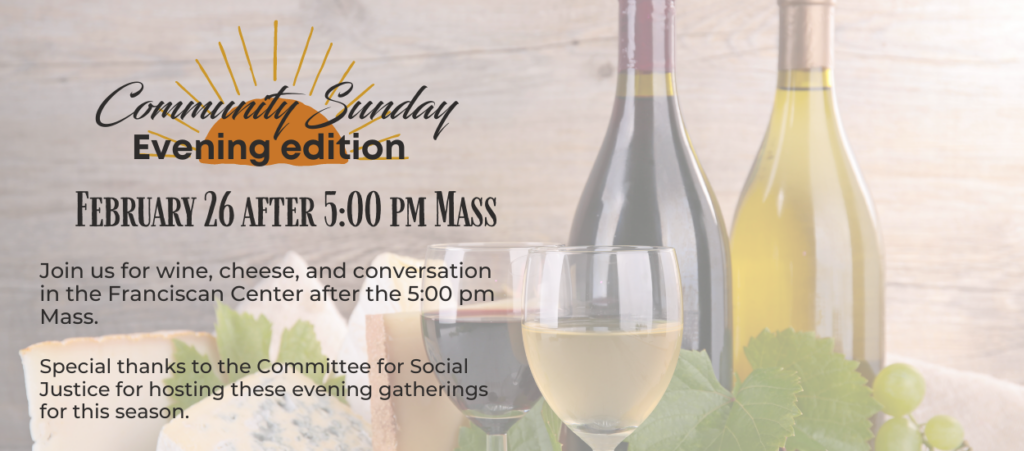
Dear Parishioners and Friends,
Several years ago Pope Francis kicked up a bit of a firestorm when he suggested in an interview that the words of the “Our Father” should be changed. Specifically, he said that the line “lead us not into temptation” should be changed to “do not let us fall into temptation.” In fact, the bishops of Italy decided to do just that, and officially changed the wording in a revised Italian translation of the Roman Missal.
When you stop to think about it, the traditional line doesn’t make sense. Would God purposely lead us into temptation? Did he purposely lead Adam and Eve into temptation in the Garden of Eden? No. As we hear in the first reading from today’s Mass, God had told them that they could eat from any of the trees in the garden, except from the tree of the knowledge of good and evil. God left the decision up to them. And of course, anything that humans are told not to do – well, we just want to do it all the more! The serpent told them to go ahead and eat. After all, the tree was beautiful, its fruit was tasty, and it was a source of wisdom.
But here is what Pope Francis said: “It is not a good translation because it speaks of a God who induces temptation. I am the one who falls. It’s not him pushing me into temptation to then see how I have fallen. A father doesn’t do that; a father helps you to get up immediately. It’s Satan who leads us into temptation – that’s his department.”
Thus, we find ourselves in the perennial human predicament. Any time we suffer a lapse in judgment, we end up eating the forbidden fruit. It may satisfy us temporarily but the consequences always last much longer. Wouldn’t it be wonderful if we could go through life without ever having to made decisions between right and wrong? That was God’s original intention. But Adam and Eve became the poster children of wrong choices. Yes, they were tempted by an outside source – the serpent, but it was they who ultimately made the decision to eat the forbidden fruit.
The Church’s doctrine of original sin says that it is the condition or state of sin into which each human being is born as a result of Adam and Eve’s first sin. In the confessional, I have heard many people say that they were led into a particular sin by the devil, who is the personification of evil and sin in the world. But doesn’t that remove a sense of responsibility from the person? Can we always blame someone or something outside of ourselves for our mistakes? Rather, should we not own up to our errors or sin as a result of a deliberate act of the will? The Book of Genesis tells us that, when God questioned Adam about the incident, Adam blamed Eve and Eve blamed the serpent. Thus began the never-ending human blame game.
In the end, we are each called to own our choices or decisions, good or bad. It’s a painful lesson to learn, to be sure. It’s also the reason why the world is in the state it is. But temptation will always be with us, and perhaps the greatest temptation is to give up. We face many difficult decisions or situations in our lives, but I believe that the greatest temptation is to give up too soon. For some, it might seem easier to just walk away from a painful situation rather than to stick with it and not give up.
I have often thought of the Serenity Prayer as the best way to address most, if not all, of life’s choices: “Lord, grant me the serenity to accept the things I cannot change; the courage to change the things that I can; and the wisdom to know the difference.” This prayer has helped me many times, and I hope it will help you as well.
May you have a Lent of serenity, courage and wisdom.
Fr. Tim Shreenan, O.F.M.Pastor





